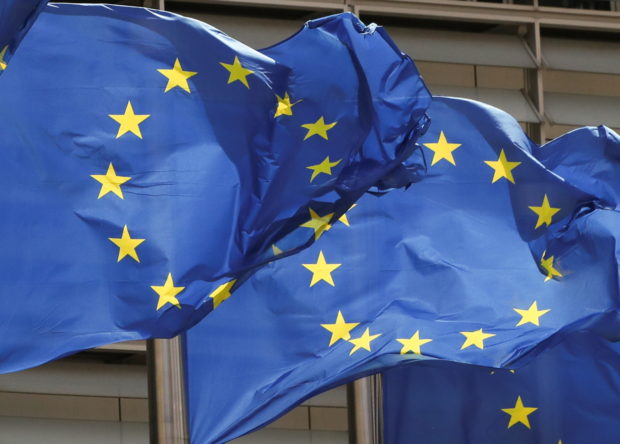EU to host webinar on how space science can help in pandemic, disasters
MANILA, Philippines — Studying space and different aspects of earth sciences — from biology to geography — may seem to be different disciplines, but an upcoming European Union (EU) webinar is set to show how such fields correlate and assist each other.
EU officials said that the webinar entitled “Beyond the Stars, Reach out to the Skies” which would take place on June 25, seeks to show how the union’s space programs have helped the continent in responding to some of the problems in Earth — from the COVID-19 pandemic to disaster risk preparedness.
“The EU is proud of its space science program and trusts that Earth Observation data can better prepare the Philippines for disasters and climate change adaptation,” EU Ambassador to the Philippines Luc Véron said in a statement on Friday.
“I believe that in the context of post-COVID recovery, in Europe as well as in the Philippines, there are economic and social spin-off gains in IT infrastructures, knowledge management and skills and jobs using Earth Observation data.” he added.
EU noted that the event would be a partnership between the Manila Observatory, Earth Shaker Philippines, Alliance for Safe, Sustainable and Resilient Environments, and Philippine Astronomical Society, which is an offshoot of the stargazing and moon gazing events hosted by EU previously.
This particular webinar would highlight the Copernicus and Galileo space programs and how they could impact disaster risk reduction and planning for the COVID-19 response.
So how does the space programs help scientists? According to EU, Copernicus, the Union’s Earth observation program, helped authorities make an “informed and coordinated EU response” towards the COVID-19 pandemic.
Galileo also helped craft the Copernicus Emergency Management Service (EMS), which helped national authorities solve traffic congestions at EU borders, partly caused by measures to contain the coronavirus spread.
“These measures caused traffic congestion and more than 24-hour waiting time for people to return home and for essential goods to cross borders. Copernicus and Galileo also monitored and facilitated the freight traffic at Green Lane border crossings and enabled the efficient transit of critical goods,” EU said.
“They provided an interface between border authorities and drivers, feeding content into real-time maps,” it added.
It appears that Copernicus also provided information about the pandemic’s effects on the environment and how climatic conditions affected the spread of the virus. Also, the EMS uses satellite imagery and other data to show how governments can respond to natural disasters like the Taal Volcano eruption last January 2020 and the onset of typhoons last October to November 2020.
“The webinar is also a prelude to the launch of the EU-PHL Copernicus Cooperation National Programme in the third quarter of 2021. This space cooperation program is the first in the Asian region and it is designed to strengthen disaster risk preparedness and climate change adaptation in the Philippines,” EU noted.
Aside from Véron, other local officials like Department of Science and Technology Secretary Fortunato de la Peña, will be present during the event.
There would also be panel discussions to show the benefits of space programs — as mentioned above.
“Besides Copernicus, the EU’s Global Satellite Navigation System Galileo – also often termed the “European GPS”, provides accurate positioning and timing information. It is a program under civilian control and its data can be used for a broad range of applications,” the EU noted.
“With 26 satellites in orbit and their supporting ground infrastructure, Galileo is currently offering three initial services after an extensive testing period: open service, public regulated service, and search and rescue service. These services are also free of charge and are available for citizens, business, and authorities,” it added.
